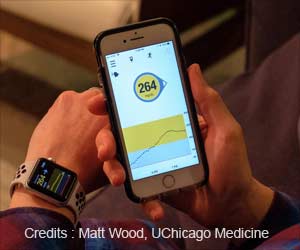Cocaine's relentless march through Europe's social order showed no sign of abating in 2009, an annual report into drug use and addiction showed on Thursday.
Cocaine's relentless march through Europe's social order showed no sign of abating in 2009, an annual report into drug use and addiction showed on Thursday.
"Cocaine and heroin continue to maintain a firm hold on Europe's drug scene, and there is little to suggest at present any improvement regarding their use in Europe," said Wolfgang Goetz, who heads the European Monitoring Centre for Drugs and Drug Addiction."With seizures up across the continent, there were "indications that suppliers may be experiencing difficulties in meeting consumer demand in some major markets," its 'State of the drugs problem in Europe' report for 2009 said.
According to the centre's research, a fall in estimated production in Bolivia, Colombia and Peru has resulted in a drop in purity on the streets of Europe's cities.
The large British cocaine market has seen a "considerable" fall in purity, echoed in prices, but the report's authors are worried that the trend, "generally stable or still increasing," is not going into reverse.
While cocaine to-date is mainly concentrated in western Europe, they added that new trafficking routes through eastern Europe "may have impeded interdiction efforts."
Four million adults are estimated to have used cocaine over the past year in the European Union and Norway.
Advertisement
The trend had been decreasing prior to 2004, but "worryingly, a small number of countries note that heroin problems have been observed among some young people, suggesting that the drug could be diffusing into new populations," it added.
On a positive note for the authors, cannabis use is actually on the decline, although weed remains the drug of choice for some 22.5 million Europeans over the past year and the centre estimates that between two and 2.5 percent of young adults use it on a near-daily basis.
However, in findings that will register with the likes of the Dutch authorities, who are stepping up gradual efforts to reduce drug tourism anchored around its infamous coffee shops, the authors said patterns of "problematic cannabis use" were less encouraging.
Another, growing concern is the fact that recreational drug users in Europe are being offered a bewildering array of new, synthetic concoctions via the Internet.
The market for illicit drugs in Europe is undergoing an alarming mutation with the rise of "designer drug" creations exploiting trade and medical regulatory loopholes in what represents a "moving target" for policy-makers.
"What is new is the wide range of substances now on offer," said Goetz, citing "aggressive and sophisticated" marketing, increasingly delivered online.
Experts worried at the "growing sophistication of the marketing of ?legal alternatives? to illicit drugs" cited herbal mixtures under the 'Spice' brand.
Next-generation methamphetamines and new forms of ecstasy were also increasingly visible, with up to half of tablets seized in Denmark and the Netherlands containing substances, many of which are missed in United Nations conventions.
These include "experimental chemicals synthesised in laboratories and untested in humans" which "can fall between drug control and trade regulation."
Said Goetz: "A common theme running through this year's report is the need for our vision to keep pace with an ever-shifting drug phenomenon."
The highest concentrations of online drug dealers were found in Britain, Germany, the Netherlands and Romania, with 13 such new substances declared to the centre and Europol by national authorities in 2008, 11 artificial.
Source-AFP
SRM









